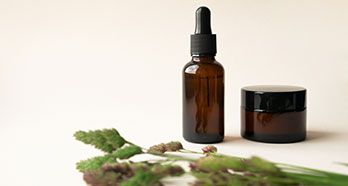Natural Remedies for Lung Health
If you feel like you're breathing through a straw or find yourself wheezing at the slightest exertion, your lungs could use some TLC. Instead of reaching for an over-the-counter inhaler, consider adding a few lung-loving herbs to your routine. These natural remedies for lung health can help open your airways, fight inflammation, and keep your respiratory system running smoothly.
Why is it important to support your lung health?
It's crucial to take care of your lungs because they play an essential role in your overall health and well-being. Healthy lungs help fight off infections by trapping irritants and pathogens in mucus so you can cough them up. Taking steps to optimise lung health helps ensure you're able to get enough oxygen, avoid problems like hypoxia, and reduce your risk of respiratory illnesses. Making positive lifestyle choices like not smoking, staying active, and eating a nutritious diet provides your lungs with the tools they need to stay in peak condition as you age. Protecting your lung capacity safeguards your ability to breathe easily and engage in normal daily activities without getting winded. If you’d like to find out how herbal and natural remedies can support your lung health, keep reading.
5 Herbal and Natural Remedies for Lung Health
1. Peppermint
This fragrant herb contains menthol, a compound that provides a soothing, cooling sensation. Menthol is an expectorant, meaning it can help thin mucus and break up coughs. Peppermint contains menthol vapours that improve airflow in those with upper respiratory tract infections and can stimulate cold receptors in the airways, causing a reflex that relaxes tight airway muscles.
Peppermint also displays anti-inflammatory, antibacterial, and antioxidant activity, all helpful properties when fighting lung congestion and infection. Sipping peppermint tea or inhaling peppermint essential oil can provide a quick clearing effect when your chest feels congested.
2. Eucalyptus
Like menthol, eucalyptus is another aromatic herb that can open up your airways. This fresh-smelling substance is found in abundance in eucalyptus leaves and essential oil.
Research shows inhaling eucalyptol improves lung function in those with respiratory conditions like asthma and COPD by dilating constricted airways and increasing airflow. The anti-inflammatory effects of eucalyptol help ease bronchial spasms and reduce mucus production, too.
A few drops of eucalyptus essential oil in a diffuser or steam tent can clear up sinuses and stuffiness. For acute attacks, rub the oil on your chest or temples. Just be sure to dilute it first to avoid irritation.
3. Ginger
Warming ginger is a staple for soothing upset stomachs, but it also has a place in respiratory remedies. Ginger contains potent anti-inflammatory compounds called gingerols that suppress airway contractions and relax smooth muscle.
Taking ginger capsules is thought to improve lung function and reduce asthmatic symptoms significantly. Some researchers suggest ginger's antioxidant and anti-inflammatory effects help reduce airway hyperresponsiveness.
Add fresh ginger to homemade cough syrups and teas, or munch on ginger candies to reap the respiratory benefits. Pro tip: combine ginger and honey for maximum throat-soothing effects.
4. Turmeric
This golden spice is garnering interest for its impressive anti-inflammatory capabilities. The polyphenol curcumin gives turmeric its vibrant hue and healing abilities. It is thought that curcumin has a spasmolytic effect on smooth muscles, making it potentially useful for improving lung function in respiratory illness.
One double-blind study found taking curcumin for two months significantly reduced airway obstruction and relieved symptoms in asthma patients. Thanks to its anti-inflammatory prowess, curcumin may help treat chronic coughs related to environmental irritants.
Blend turmeric into smoothies, brew into tea, or take a curcumin supplement to leverage its lung-loving prowess. Pair with piperine from black pepper to boost the bioavailability of curcumin.
5. Thyme
This aromatic, antimicrobial herb contains thymol, a compound that increases respiration and expectoration. Thyme has been used traditionally to treat respiratory infections. Modern research indicates thymol helps relax tracheal tissues and increase cough reflexes to clear irritants.
Simmer fresh or dried thyme in hot water for a diaphoretic tea to sip. Thyme essential oil can be diluted and applied topically or diffused for inhalation benefits too.
Breathe Easy with High-Quality Herbs from Baldwins
Baldwins promise to deliver the best quality natural ingredients to supplement our customer’s health. The above herbs offer a natural approach to keeping your lungs happy and healthy, however, always consult your doctor before using herbal remedies, especially if you have a respiratory condition.
With the right herbs on your side, breathing easy is within reach. Stay ahead of seasonal bugs, allergens, and irritants by incorporating lung-friendly herbs into your wellness routine. Keep your airways open and chest clear, without relying solely on an inhaler. Try mixing these herbs into teas, soups, smoothies, and meals for an aroma-therapeutic, respiratory-enhancing effect.







 Looking for Qualified Advice on Herbs & Supplements?
Read our health guides, quick tips and popular posts on a range of health conditions, products & fitness
Looking for Qualified Advice on Herbs & Supplements?
Read our health guides, quick tips and popular posts on a range of health conditions, products & fitness
 At number 64, our Walworth Road Shops are featured in Time out London’s
100 best shops and we couldn’t be more delighted!
At number 64, our Walworth Road Shops are featured in Time out London’s
100 best shops and we couldn’t be more delighted!

 View our Catalogue online.
It is stocked full of our latest oils, beauty products, health foods & gifts.
View our Catalogue online.
It is stocked full of our latest oils, beauty products, health foods & gifts.